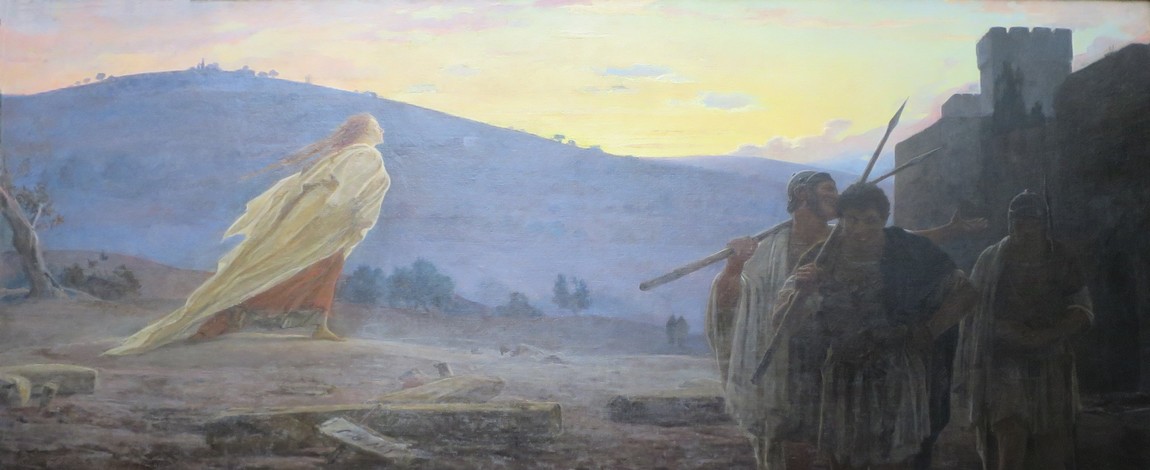
The gospels don't tell us how was the reunion of Jesus with his mother; they only talk about the encounter with Mary Magdalene and with the apostles later, before sending them to spread his message. In fact, none of the gospels ever talk about Maria after Christ's resurrection. So, Rilke lets his imagination sour and tells us about this reunion with a touching delicacy; he addresses first to his mother (of course, to who else!), and does so in silence, hardly touching her. There are no tears, no laughs, no overflowing emotions. Only, or at least it's what I understand, an intense, long sight. The poetic voice is that of an observer who tries to describe what he sees, with something of innocence; he says that Jesus is relieved, still pale after death, and also tells us that he's completely resurrected. Literally, he tells "on all points"; does that mean that all his wounds are healed? (This way he would contradict the Gospel of John, which tells us about doubting Thomas). And, above all, the poetic voice tells us that mother and son heal; with this look that is not mentioned, they heal each other all their sufferings.
Hindemith accompanies the delicacy of Rilke with his music. We're listening to Juliane Banse and Martin Helmchen, a recording of the first version of the work, published in 1923, while in September we heard a recording of the final version of 1948. In this case, however, it doesn't matter the version we choose because the only song that Hindemith didn't rewrite is this one.
I hope you enjoy Stillung Mariä mit dem Auferstandenen, and the Easter week.
Was sie damals empfanden: ist es nicht
vor allen Geheimnissen süß
und immer noch irdisch:
da er, ein wenig blaß noch vom Grab,
erleichtert zu ihr trat:
an allen Stellen erstanden.
O zu ihr zuerst. Wie waren sie da
unaussprechlich in Heilung.
Ja sie heilten, das war's. Sie hatten nicht nötig,
sich stark zu berühren.
Er legte ihr eine Sekunde
kaum seine nächstens
ewige Hand an die frauliche Schulter.
Und sie begannen
still wie die Bäume im Frühling,
unendlich zugleich,
diese Jahreszeit
ihres äußersten Umgangs.
What they felt then: is it not
sweet above all other mysteries
and yet still earthly:
when he, still a bit pallid from the grave
but relieved, came to her:
risen all over.
Oh, to her first. How they were there,
inexpressibly, in healing.
Yes, they healed, that was it. They had no need
to touch each other with firm gripping.
For a second he barely
laid his soon-to-be
eternal hand on her womanly shoulder.
And they began,
quietly like the trees in spring,
infinitely all the same,
this season
of their final association.
(translation by Naxos)
















